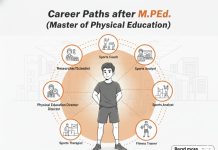- Why Choosing the Right Course Matters
- What Is B.Tech. Aerospace Engineering [Lateral Entry]?
- Who Should Consider B.Tech. Aerospace Engineering [Lateral Entry]?
- Why Aerospace Engineering Is a Game-Changer in Technology
- Top Skills You’ll Develop in B.Tech. Aerospace Engineering [Lateral Entry]
- Aerospace Scope in Future: What’s Next?
- Internship & Project Opportunities
- Alumni Success Stories
- How to Maximize Your Career in Aerospace Engineering
- Higher Studies and Global Certifications After B.Tech. Aerospace Engineering [Lateral Entry]
- Conclusion
- Frequently Asked Questions (FAQs)
Why Choosing the Right Course Matters
In today’s fast-changing world, the choices you make in education can shape the direction of your entire career. With industries evolving rapidly and technology advancing at an unprecedented pace, choosing the right course after your diploma or previous studies becomes more important than ever.
For students passionate about flight, innovation, and space exploration, making the right aerospace career decisions is crucial. The aerospace sector is expanding globally, with growing opportunities in aircraft design, satellite technology, defense research, and space missions. India too is witnessing a surge in aerospace advancements, driven by organizations like ISRO, DRDO, and major private players.
This is where lateral entry engineering choices play a significant role. They allow diploma holders or equivalent qualified students to directly enter the second year of a B.Tech programme, saving valuable time and focusing on specialized learning. Among these, B.Tech. Aerospace Engineering [Lateral Entry] is one of the most promising options, offering students a chance to combine technical expertise with real-world applications and prepare for a rewarding career in the aerospace industry.
| Did you know? LPU’s B.Tech. Aerospace Engineering [Lateral Entry] programme provides access to advanced labs like Wind Tunnel Testing, Aircraft Structure Lab, Propulsion Lab, and CAE simulation centers, giving students hands-on experience in real-world aerospace projects. |
What Is B.Tech. Aerospace Engineering [Lateral Entry]?
The B.Tech Aerospace Lateral Entry programme is a specialized pathway for diploma holders and students with equivalent qualifications who aspire to pursue advanced studies in aerospace engineering. Unlike the regular entry route, this programme allows students to begin directly from the second year of the degree, reducing the overall duration of study and enabling faster career progression.
When looking into aerospace engineering degree details, it is clear that this programme offers a comprehensive blend of classroom learning, laboratory practice, and project-based training. The curriculum is designed to cover both the fundamental principles and advanced concepts of aerospace science, such as:
- Aerodynamics – understanding airflow around aircraft and spacecraft.
- Aircraft Structures – designing and analyzing strong yet lightweight structures.
- Propulsion Systems – studying jet engines, rockets, and innovative propulsion technologies.
- Avionics & Control Systems – exploring navigation, communication, and flight control technologies.
- Space Technology – gaining insights into satellites, launch vehicles, and space exploration missions.
Choosing a lateral entry aerospace programme is particularly beneficial for students who already have a strong technical foundation from their diploma studies. It gives them an opportunity to specialize in one of the most exciting and dynamic branches of engineering without repeating basic subjects.
This programme also emphasizes practical training, ensuring students are industry-ready. At institutions like Lovely Professional University (LPU), learners get access to advanced simulation tools, wind tunnel testing facilities, avionics labs, and propulsion units, all of which bridge the gap between theory and application.
Moreover, students gain exposure to research projects, industry internships, and global collaborations, which prepare them for careers in prestigious organizations like ISRO, DRDO, HAL, Boeing, and Airbus. By combining technical expertise with innovation, the course equips graduates to contribute meaningfully to the aerospace industry, whether in aircraft design, space exploration, or defense technology.
In short, a B.Tech Aerospace Lateral Entry programme is more than just a degree—it’s a stepping stone to a high-tech career that blends passion, creativity, and engineering excellence.
| Did you know? Students of LPU have achieved global recognition—Riya Dewangan won the Best Poster Presentation Award at an ISRO International Conference, while Richa Bhandari gained international exposure at Coventry University, UK. |
Who Should Consider B.Tech. Aerospace Engineering [Lateral Entry]?
Deciding on a specialization can often feel overwhelming, but knowing the eligibility for B.Tech. Aerospace Engineering [Lateral Entry] helps students make informed choices. Generally, diploma holders in Mechanical, Aeronautical, Aerospace, or related engineering fields—or students with equivalent qualifications—are eligible to apply. This pathway is designed for those who already have a strong technical foundation and wish to fast-track their engineering degree.
So, who should study aerospace engineering? This programme is ideal for students who are curious about flight, fascinated by spacecraft, or inspired by the technological advancements in aviation and defense. It suits learners who enjoy solving complex problems, working with cutting-edge technology, and exploring innovations in design and engineering.
The ideal students for aerospace engineering are those who:
- Have completed a diploma or equivalent qualification in a relevant technical field.
- Are passionate about aircraft, rockets, drones, or satellite technology.
- Possess strong analytical and mathematical skills.
- Wish to contribute to the fields of aviation, defense research, or space exploration.
- Seek an accelerated pathway to complete their engineering degree and enter the job market sooner.
In short, if you dream of building aircraft, designing propulsion systems, or contributing to space missions, and you meet the eligibility for aerospace lateral entry, then B.Tech. Aerospace Engineering [Lateral Entry] could be the right choice for you.
Why Aerospace Engineering Is a Game-Changer in Technology
The aerospace industry growth over the past few decades has been remarkable, making aerospace engineering one of the most impactful fields in modern technology. From commercial airlines that connect the world to satellites that power communication and navigation systems, aerospace innovations have transformed the way we live, work, and interact.
The importance of aerospace engineering lies in its ability to merge advanced science with real-world applications. It drives progress in multiple areas, including:
- Aviation: Safer, faster, and more efficient aircraft for global travel.
- Space Exploration: Rockets, satellites, and spacecraft that enable space missions and planetary research.
- Sustainable Solutions: Development of eco-friendly propulsion systems and lightweight materials for reducing carbon footprints.
Another crucial aspect is the role of aerospace in defense and space. Aerospace engineers contribute significantly to national security by designing fighter jets, drones, and missile systems, while also supporting space research for scientific advancement. Organizations like ISRO, NASA, DRDO, and private aerospace companies rely heavily on the expertise of aerospace professionals to push boundaries of what is possible.
In essence, aerospace engineering is not just about creating machines that fly—it is about shaping the future of transportation, communication, defense, and space discovery. With continuous aerospace industry growth, the demand for skilled professionals will only increase, making it a truly game-changing career path.
| Did you know? LPU encourages innovation through student-led competitions, including Supra SAE, Baja SAE India & USA, Efficycle, and International Go-Kart Championships, where students design and build vehicles to compete nationally and internationally. |
Top Skills You’ll Develop in B.Tech. Aerospace Engineering [Lateral Entry]
One of the biggest advantages of pursuing this programme is the wide range of aerospace engineering skills you acquire throughout your academic journey. The course is carefully designed to provide both technical knowledge and hands-on training, ensuring you graduate as a skilled professional ready to take on the demands of the aerospace industry.
Here are some of the most important skills and knowledge areas you will gain:
- Design and Simulation Skills
Learn to design and analyze aircraft and spacecraft systems using advanced CAD/CAM tools, flight simulation software, and mechatronics applications. These design and simulation skills are essential for building efficient aerospace solutions. - Technical Skills in Aerospace
Gain expertise in aerospace systems, flight dynamics, propulsion technologies, and avionics. Through lab experiments and industry-based projects, you’ll master the technical skills in aerospace needed to work with cutting-edge technologies. - Core Engineering Knowledge
Develop a strong foundation in multiple domains, including:- Applied Mechanics & Machine Design – understanding forces, motion, and structural design.
- Manufacturing & Industrial Engineering – learning efficient production processes and systems optimization.
- Materials Engineering – studying lightweight and durable materials critical for aerospace applications.
- Thermal Engineering & Fluid Mechanics – analyzing heat transfer, energy systems, and fluid flow in aircraft and spacecraft.
- Automobile Technology – exploring cross-disciplinary applications of engineering in advanced vehicle systems.
- Problem-Solving & Analytical Skills
Aerospace engineers deal with complex challenges where accuracy is vital. The programme sharpens your analytical thinking and prepares you to design solutions that meet real-world demands. - Innovation & Research Orientation
With opportunities to work on projects, internships, and global competitions, you’ll cultivate creativity, research skills, and an innovation-driven mindset.
The aerospace engineering skills you acquire at LPU—ranging from technical expertise to design and simulation skills—will prepare you for successful careers in aviation, defense, space research, and related high-tech industries.
Aerospace Scope in Future: What’s Next?
The future of aerospace engineering is filled with innovation, growth, and limitless possibilities. As technology advances, the aerospace sector is expanding beyond traditional aircraft and spacecraft into areas like unmanned aerial vehicles (UAVs), drone technology, satellite systems, space tourism, and sustainable aviation solutions. This evolution opens exciting pathways for aspiring engineers.
With rapid globalization and the rising need for efficient air travel, the scope of aerospace industry is expected to increase significantly in the coming years. Countries around the world are investing heavily in research and development, defense systems, and space exploration missions. India, with its ambitious projects under ISRO and growing private aerospace companies, is emerging as a hub for innovation in this sector.
For students, this translates into diverse aerospace career opportunities across fields such as:
- Aircraft and spacecraft design and manufacturing.
- Satellite communication and navigation systems.
- Defense technologies including drones, missiles, and fighter jets.
- Space research, exploration, and commercial space travel.
- Sustainable aviation and green propulsion systems.
In short, the future of aerospace engineering is not just about building machines that fly—it’s about driving the next wave of global innovation. With a strong educational foundation through programmes like B.Tech. Aerospace Engineering [Lateral Entry], students can position themselves at the forefront of this exciting and ever-expanding industry.
| Did you know? Graduates of the aerospace lateral entry programme can pursue careers in defense services, PSUs like NTPC/NHPC/ONGC, core manufacturing, software, and even food processing industries, in addition to higher studies like M.Tech and MBA. |
Internship & Project Opportunities
One of the major strengths of pursuing B.Tech. Aerospace Engineering [Lateral Entry] at LPU is the emphasis on aerospace internships, projects in aerospace engineering, and practical training in aerospace. The programme is designed to give students maximum industry exposure, ensuring that they graduate not just with theoretical knowledge, but also with real-world skills.
Industry-Linked Trainings and Labs
Students get access to specialized training programmes and state-of-the-art labs, including:
✔ Industrial Training in collaboration with Central Tool Room, Ludhiana – exposure to the latest advanced machinery.
✔ Computer-Aided Engineering (CAE) training centre in partnership with Innovent Solutions.
✔ Autodesk-supported CAD software training for design activities.
✔ Automobile Engine Fuel Testing Lab established by Medhavi Groups.
✔ Wind Tunnel Testing and Aerodynamics Lab for real-world aerodynamic studies.
✔ Guest lectures and workshops by industry experts from organizations like ICAT, Maruti, and Swaraj.
Student-Led Research & Competitions
Students, with the guidance of faculty and the university, are actively involved in research and innovation. LPU provides platforms to explore interests in both aerospace and automotive engineering:
- Participation in Supra SAE (Student Formula Car), Baja SAE India, BAJA SAE USA, and Efficycle competitions.
- Organization of the International Go-Kart Championship, the first student-initiated automotive event of its kind with participants from across Asia.
- Building Formula Cars and Concept Cars as part of student clubs, representing LPU at national and international competitions such as BAJA SAEINDIA, BAJA SAE UTEP (Texas), Formula USA, and Formula SAE India.
Research & Innovation Ecosystem
The Mechanical and Aerospace Engineering departments at LPU are powered by highly experienced faculty engaged in advanced research in areas like CAD/CAM, thermal engineering, fluid dynamics, tool design, flexible manufacturing systems, and automation. With more than 100 publications in prestigious journals and conferences, the department provides students an opportunity to learn from and contribute to globally recognized research.
Why This Matters for You
By engaging in aerospace internships, projects in aerospace engineering, and practical training in aerospace, students develop not only strong technical expertise but also teamwork, innovation, and problem-solving skills. This hands-on exposure prepares them to take on challenging roles in aerospace, automotive, defense, and advanced manufacturing industries worldwide.
Alumni Success Stories
At LPU, the achievements of our students and alumni showcase the impact of world-class training, global exposure, and hands-on learning. These aerospace alumni success stories inspire future engineers to dream bigger and aim higher.
For example, Riya Dewangan, a B.Tech Aerospace Engineering student, was honored with the Best Poster Presentation Award at the International Conference on Planet, Exoplanets, and Habitability organized by ISRO’s Physical Research Laboratory. Her success demonstrates how LPU nurtures innovation and research skills among budding aerospace professionals.
Supporting these aerospace graduates’ careers, LPU has also established a Centre of Excellence for Aerospace Engineering in collaboration with Barola Technologies, Bengaluru. This initiative, combined with well-equipped labs such as the Subsonic Wind Tunnel facility, Aircraft Structure Lab, Aerodynamics Lab, Propulsion Lab, Ground-run Piper A28 Aircraft, Gas turbine test rigs, and landing gear retraction systems, gives every student ample opportunities for practical exposure and innovation.
These stories of student success in aerospace reflect LPU’s commitment to producing industry-ready engineers who not only excel academically but also leave their mark in research, global collaborations, and high-tech careers.
How to Maximize Your Career in Aerospace Engineering
Building a successful future in aerospace requires not only academic knowledge but also strategic planning and continuous growth. With the rapid expansion of the aerospace sector, students need to be proactive in shaping their careers. Here are some aerospace career growth tips to help you maximize your potential:
- Gain Hands-On Experience: Actively participate in labs, workshops, and research projects to develop strong technical skills. Practical exposure makes you stand out during interviews.
- Pursue Internships & Industry Training: Explore job opportunities in aerospace through internships at leading companies such as Boeing, Airbus, ISRO, DRDO, or Hindustan Aeronautics Limited. Real-world experience helps in bridging the gap between classroom learning and industry expectations.
- Focus on Certifications & Specializations: Add value to your aerospace engineering degree by gaining certifications in CAD/CAM, simulation, propulsion systems, drone technology, or space systems.
- Develop Research & Innovation Skills: Contribute to publications, attend conferences, and work on projects that solve real aerospace challenges. Innovation is a key driver of success in this high-tech field.
- Networking & Global Exposure: Leverage LPU’s tie-ups with international universities and aerospace organizations to expand your professional network and gain global perspectives.
- Seek Career Guidance: Utilize career guidance for aerospace engineers offered by university mentors, alumni, and industry experts to make informed decisions about your path—whether in defense, space research, or private aerospace companies.
Career Pathways After Aerospace Engineering
Graduates from the B.Tech Aerospace Lateral Entry programme at LPU can pursue diverse and rewarding career opportunities such as:
- Defence Services – Work with Indian Air Force, Navy, or DRDO in aircraft and space defense systems.
- Indian Engineering Services (IES) – Secure prestigious positions through UPSC examinations.
- Public Sector Undertakings (PSUs) – Opportunities in NTPC, NHPC, ONGC, and other leading PSUs.
- Higher Studies – Advance your knowledge with M.Tech in specialized aerospace fields or MBA for managerial roles.
- Core Industry – Roles in Manufacturing and Design sectors for aircraft, engines, and aerospace systems.
- Software Industry – Careers in simulation, CAD/CAM design, and aerospace-related software solutions.
- Food Processing Industry – Application of aerospace thermal and mechanical skills in modern food plants such as dairy and milk processing industries.
By combining strong academics, practical training, and continuous upskilling, students can accelerate their journey and achieve exponential growth in the aerospace and allied industries.
Higher Studies and Global Certifications After B.Tech. Aerospace Engineering [Lateral Entry]
Completing a B.Tech Aerospace Lateral Entry programme opens doors not only to jobs but also to advanced academic and professional pathways. Many students opt for higher studies in aerospace to specialize in areas such as aerodynamics, propulsion systems, avionics, or space engineering. Pursuing an M.Tech or MS in Aerospace Engineering provides deeper knowledge, research exposure, and access to opportunities in academia, defense, and international research organizations.
Apart from postgraduate degrees, students can also explore postgraduate aerospace opportunities like MBA in Aviation Management, which blends technical and managerial skills for leadership roles in the aerospace and aviation industry.
For those aiming to stand out globally, aerospace global certifications are a valuable addition. Certifications in areas such as CAD/CAM design, Computational Fluid Dynamics (CFD), Drone Technology, Aircraft Maintenance Engineering (AME), and Space Systems not only enhance technical expertise but also make graduates highly competitive in the international job market.
By combining advanced studies with industry-recognized certifications, students can unlock high-paying roles and establish themselves as specialists in the rapidly evolving aerospace sector.
Conclusion
In today’s competitive and technology-driven era, choosing the right academic path is one of the most crucial decisions for any student. The conclusion on aerospace course highlights that this discipline is not just about aircraft or spacecraft—it is about contributing to the future of mobility, defense, communication, and even sustainable technologies. Aerospace engineering offers a dynamic blend of science, design, and innovation, which makes it one of the most respected and in-demand professions worldwide.
When evaluating why choose aerospace engineering, students must consider its wide scope and long-term relevance. The field opens doors to prestigious opportunities in organizations such as ISRO, DRDO, Boeing, Airbus, and other global aerospace leaders. Moreover, the discipline plays a key role in national defense, commercial aviation, space exploration, and cutting-edge industries like drones, satellites, and advanced propulsion systems. It provides the satisfaction of solving real-world challenges while enjoying career stability and global recognition.
As final thoughts, pursuing B.Tech. Aerospace Engineering [Lateral Entry] at Lovely Professional University is an excellent choice for students seeking both academic excellence and career advancement. LPU’s programme is tailored to meet global standards, equipped with state-of-the-art labs, simulation tools, and strong industry collaborations. Students benefit from exposure to real projects, internships, international pathways, and opportunities to participate in global competitions.
By opting for this course at LPU, learners not only gain technical expertise but also develop leadership, problem-solving, and innovation skills that set them apart in the global job market. With higher studies options, international certifications, and placement opportunities across diverse industries, graduates are fully prepared to maximize their potential and become future leaders in the aerospace domain.
In conclusion, if you are passionate about flight, space, and technology, and are looking for a career that combines innovation with impact, then B.Tech. Aerospace Engineering [Lateral Entry] at LPU is the perfect pathway to turn your dreams into reality.
Frequently Asked Questions (FAQs)
Q1. What is the duration of the B.Tech Aerospace Lateral Entry programme?
The programme typically spans three years, as lateral entry students start from the second year, saving one year compared to the standard four-year B.Tech.
Q2. What are the key subjects and skills covered?
The curriculum includes aerodynamics, propulsion systems, avionics, materials science, fluid mechanics, thermal engineering, and CAD/CAM design. Students also develop practical technical skills in aerospace, design and simulation skills, and problem-solving abilities.
Q3. What kind of aerospace career opportunities can I expect?
Graduates can pursue careers in defense services, PSUs like NTPC/NHPC/ONGC, core manufacturing industries, software industries, food processing, or higher studies (M.Tech/MBA). International opportunities and roles in private aerospace companies like Boeing, Airbus, and HAL are also available.
Q4. Are internships and projects part of the programme?
Yes. LPU offers a strong emphasis on projects in aerospace engineering, aerospace internships, and practical training in aerospace, including access to wind tunnel labs, propulsion labs, CAE training, and aircraft structure labs. Students also participate in national and international competitions to gain real-world experience.
Q5. Can I pursue higher studies after completing the programme?
Absolutely. Students can opt for higher studies in aerospace, postgraduate aerospace opportunities, or pursue aerospace global certifications to specialize further and enhance their career prospects.

![Is B.Tech. Aerospace Engineering [Lateral Entry] the Right Course for You? Is B.Tech. Aerospace Engineering [Lateral Entry] the Right Course for You?](https://www.lpu.in/blog/wp-content/uploads/2025/10/B-Tech-Aerospace-Engineering-Lateral-Entry-03-1.png)

![Is B.Sc. Information Technology [Lateral Entry] the Right Course for You? Is B.Sc. Information Technology [Lateral Entry] the Right Course for You?](https://www.lpu.in/blog/wp-content/uploads/2026/01/Is-B.Sc_.-Information-Technology-Lateral-Entry-the-Right-Course-for-You-218x150.png)










